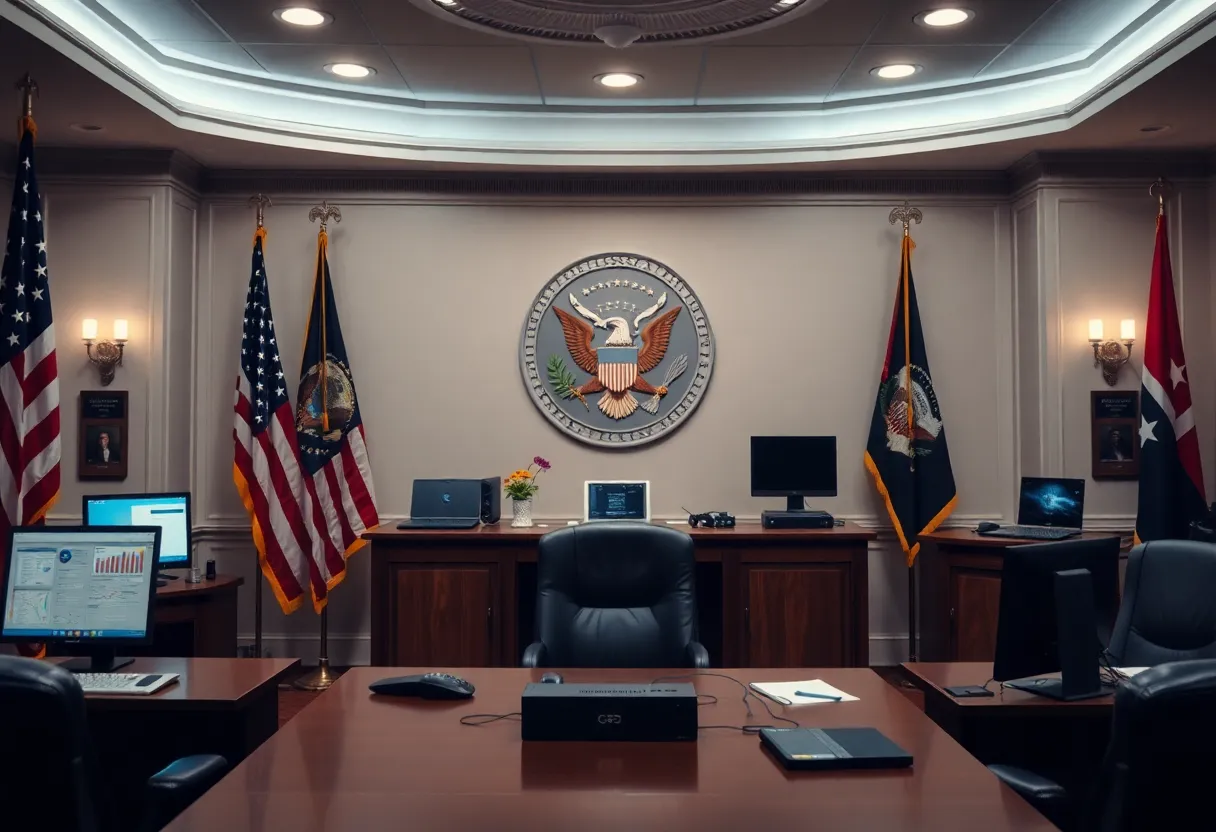News Summary
The Trump administration has fired General Timothy Haugh, the director of the NSA, and his deputy, Wendy Noble, creating a significant shift in the nation’s intelligence community just months into the new administration. The firings have raised concerns among political figures and defense officials regarding national security and the potential influence of political loyalty in military leadership. Lt. Gen. William Hartman will serve as the acting head of both the NSA and Cyber Command amidst rising cyber threats faced by the U.S.
Major Intelligence Shakeup as Trump Administration Dismisses Key Figures
In a surprising move, the Trump administration has officially fired General Timothy Haugh, the director of the National Security Agency (NSA) and chief of U.S. Cyber Command. Along with him, his deputy, Wendy Noble, has also been dismissed, marking a significant reshuffle in the nation’s intelligence community just a couple of months into the new administration.
Who Were Haugh and Noble?
Both Haugh and Noble weren’t newcomers to their roles; they had taken the reins back in February 2024. Their experience and leadership seemed to anchor the NSA and Cyber Command through a complex landscape of global cyber threats. With Haugh’s extensive military background and Noble’s seasoned expertise, they were expected to contribute significantly to national security efforts.
Understanding the Reasons Behind the Firings
The reasons for this sudden dismissal remain unclear, which has left many scratching their heads. The firings came to light through members of both the Senate and House intelligence committees, supported by two former officials aware of the situation. This sudden shakeup is being viewed by some as part of a broader strategy by the Trump administration to assert its influence within military and intelligence leadership.
What’s Next for Cyber Command and NSA?
In the wake of this turbulence, Lt. Gen. William Hartman, who was Haugh’s deputy, is stepping in as the acting head of both the NSA and Cyber Command. It’s a crucial period for these agencies, given the rising cyber threats the U.S. is facing from both state and non-state actors.
Political Reactions to the Dismissals
Not surprisingly, the political fallout has been significant. Prominent Democratic figures such as Sen. Mark Warner and Rep. Jim Himes have voiced serious concerns about the implications of these firings. They argue that this drastic change could jeopardize the safety of the nation, especially as cyber threats continue to evolve and grow more sophisticated.
A Broader Context of Firings
These dismissals follow earlier firings of several National Security Council staff members, which occurred after a controversial meeting. Far-right activist Laura Loomer had called for the removal of officials she deemed disloyal, indicating a potential trend of political loyalty overriding professional expertise in national security matters.
Echoes of Concern from the Defense Community
The atmosphere within the Defense Department is reportedly fraught with fear regarding job security and loyalty to the Trump administration. Current and former defense officials are expressing concern that such an environment stifles independent judgment and decision-making crucial to national security.
A Close Look at Cyber Command and NSA’s Role
The NSA is pivotal in global cyber intelligence operations and critical in providing insights that inform U.S. leadership decisions. Cyber Command, on the other hand, was created to tackle escalating foreign cyber threats and has played a vital role in safeguarding U.S. elections from external interference, particularly from countries like Russia and Iran.
The Future is Uncertain
With the complexities surrounding Haugh and Noble’s abrupt exits, experts like cybersecurity specialist Renée Burton describe the situation as “alarming.” The NSA’s intricate mission is not just about protecting data; it’s about national security in a time when cyber threats are escalating at an alarming rate. The Trump administration has previously purged military leadership, and this latest shakeup raises eyebrows about the stability and safety of American cybersecurity.
As the new administration settles in, the focus will inevitably shift back to who will take charge in these significant areas and how they will address the pressing cyber challenges that lie ahead. The road ahead is undoubtedly demanding, and the nation watches closely.
Deeper Dive: News & Info About This Topic
- CNN
- Wikipedia: National Security Agency
- USA Today
- Google Search: Trump firing NSA director
- Fox News
- Google Scholar: NSA leadership changes
- Financial Times
- Encyclopedia Britannica: Cyber Command
- AP News
- Google News: Trump NSA firing







